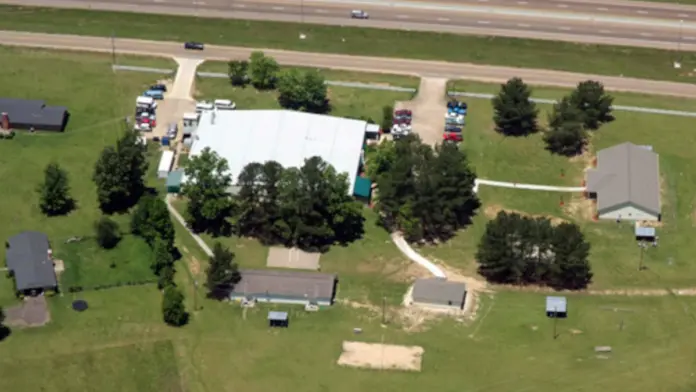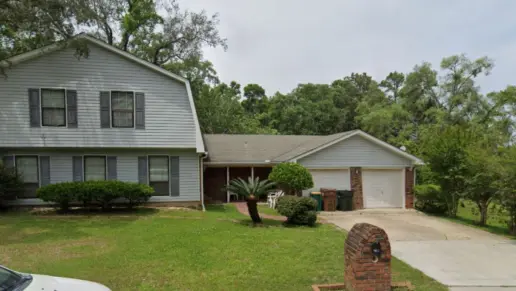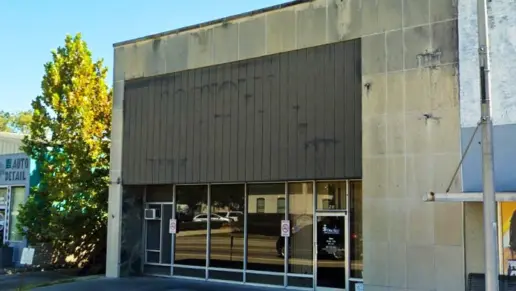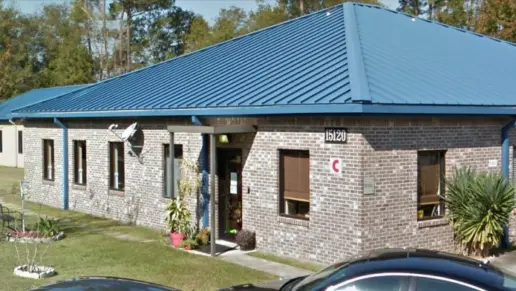Well I was 4mos pregnant and was accepted to the program with a scholarship and I didn't really want to do it in the beginning but eventually I would be the one to get the thing stated. Lol.
About Harbor House Chemical Dependency
Harbor House is an alcohol and drug rehab in Byram, Mississippi. They offer residential treatment and addiction aftercare for adults 18 and older. Clients can access alcohol, drug, opioid, trauma, and co occurring disorder care with individualized American Society of Addiction Medicine (ASAM) informed treatment plans. They provide gender separate programs, medication assisted treatment (MAT), peer support, and medical, family, DUI, Veterans, and trauma services.
Their inpatient rehab offers a supportive environment for patients to live onsite while completing treatment. Most clients spend about 1 3 months in the program. Clients use evidence based approaches, including individual, group, and family therapy. Licensed therapists utilize motivational interviewing (MI), Seeking Safety, Living in Balance, and 12 Step facilitation to help clients achieve and sustain recovery. They provide Alcoholics Anonymous (AA) and Narcotics Anonymous (NA) meetings on and offsite. Clients also can access family, medical, DUI, peer support, Veterans, and trauma services.
Their recovery support services offer addiction aftercare to encourage long term recovery. Clients benefit from weekly ongoing peer support to achieve their recovery goals.
MAT can reduce cravings and withdrawal symptoms for clients with severe addictions. Their addiction specialists integrate MAT with behavioral therapies to help clients overcome addiction.
Harbor House does not accept any form of private insurance. Still, they write statements to help you file claims with insurance companies like UnitedHealthcare, Beacon, Ambetter, HCSC, TRICARE, Magellan Health, and more. Be sure to verify your insurance, as out of network benefits typically differ.
Rehab Score
Gallery

Location
Other Forms of Payment
Private insurance refers to any kind of healthcare coverage that isn't from the state or federal government. This includes individual and family plans offered by an employer or purchased from the Insurance Marketplace. Every plan will have different requirements and out of pocket costs so be sure to get the full details before you start treatment.
Self-pay involves paying for treatment out of your own pocket. You can use savings or credit, get a personal loan, or receive help from family and friends to fund your treatment. If you don't have insurance or your insurance plan doesn't cover a specific program, self-pay can help ensure you still get the care you need.
Financial aid can take many forms. Centers may have grants or scholarships available to clients who meet eligibility requirements. Programs that receive SAMHSA grants may have financial aid available for those who need treatment as well. Grants and scholarships can help you pai for treatment without having to repay.
Sliding scale payments are based on a client's income and family size. The goal is to make treatment affordable to everyone. By taking these factors into account, addiction recovery care providers help ensure that your treatment does not become a financial burden to you or your family, eliminating one barrier to care.
Medicare is a federal program that provides health insurance for those 65 and older. It also serves people under 65 with chronic and disabling health challenges. To use Medicare for addiction treatment you need to find a program that accepts Medicare and is in network with your plan. Out of pocket costs and preauthorization requirements vary, so always check with your provider.
Medicaid is a state based program that helps lower-income individuals and families pay for healthcare. Medicaid covers addiction treatment so those enrolled can use their coverage to pay for rehab. When a program accepts Medicaid the client often pays very little or nothing out of their own pocket.
Addiction Treatments
Levels of Care
Treatments
The goal of treatment for alcoholism is abstinence. Those with poor social support, poor motivation, or psychiatric disorders tend to relapse within a few years of treatment. For these people, success is measured by longer periods of abstinence, reduced use of alcohol, better health, and improved social functioning. Recovery and Maintenance are usually based on 12 step programs and AA meetings.
For those seeking help with addiction, a drug rehab in Mississippi offers the necessary care to achieve long-term recovery. Options include inpatient, residential, partial hospitalization, intensive outpatient, and long-term drug rehab in Mississippi.
Opioid rehabs specialize in supporting those recovering from opioid addiction. They treat those suffering from addiction to illegal opioids like heroin, as well as prescription drugs like oxycodone. These centers typically combine both physical as well as mental and emotional support to help stop addiction. Physical support often includes medical detox and subsequent medical support (including medication), and mental support includes in-depth therapy to address the underlying causes of addiction.
Substance rehabs focus on helping individuals recover from substance abuse, including alcohol and drug addiction (both illegal and prescription drugs). They often include the opportunity to engage in both individual as well as group therapy.
Programs


Clinical Services
Group therapy is any therapeutic work that happens in a group (not one-on-one). There are a number of different group therapy modalities, including support groups, experiential therapy, psycho-education, and more. Group therapy involves treatment as well as processing interaction between group members.
In individual therapy, a patient meets one-on-one with a trained psychologist or counselor. Therapy is a pivotal part of effective substance abuse treatment, as it often covers root causes of addiction, including challenges faced by the patient in their social, family, and work/school life.
Counselors who apply motivational interviewing take on the roles of listening and reflecting. Their goal is to facilitate conversation about change and commitment to change. They offer support and seek to empower the client to make changes in their life.
The Family Program is available to all interested parties. It focuses on information and education about the disease of addiction and is held at the South Jackson campus on Thursday evenings (for a total of six sessions). The major goal of the Family Program is to provide families and friends with information and education that allows them to understand the disease of addiction and what they can do to begin the process of recovery. Families are affected by addiction in many ways and they suffer many consequences; their own recovery is essential for their welfare and for that of the client. Families in the Program can sign up for a formal family conference. The Family Program covers the same six-week curriculum as that of the educational program for clients. At the start of each session the topic for the evening is introduced, followed by a film, a brief lecture and a discussion circle that includes the clients whose families/friends are in attendance. The last fifteen minutes of the Program allow for clients and families to visit and continue their discussion together in small groups. The films provide information on the medical aspects of addiction, the stages of recovery, the signs and symptoms of relapse, spiritual advice on the dangers of enabling, behaviors associated with denial and client testimonials about relapses associated with cross addictions.
Life skills trainings involve all the skills a person must have in order to function successfully in the world. These include time management, career guidance, money management, and effective communication. Truly successful addiction recovery is based on the ability to not only live substance-free, but to thrive. Life skills teaches the practical necessities of functioning in society, which sets clients up for success in life, and therefore sobriety.
Substances may suppress your appetite, block the absorption of vitamins, affect metabolism, or otherwise wreak havoc on your health. Nutrition therapy addresses these concerns by teaching you about the best foods for recovery and how to create a nutritious meal plan that supports healing and long term health.
The purpose of the Ropes Course, which is also called adventure based counseling, is to challenge groups of individuals to work together as a team to overcome obstacles in an effort to reach their goals -- those set by the facilitator and those set by the participants themselves. As opposed to the typical “feelings groups,” in which residents sit around a circle and work through concerns verbally, this approach to group therapy places participants in a hands-on learning situation. The Course takes place over two days (4 hours each day).
Amenities
-
Yoga Studio
-
Residential Setting
-
Private Rooms
Staff & Accreditations
Staff

Executive Director
Accreditations

The Substance Abuse and Mental Health Services Administration (SAMHSA) is a branch of the U.S. Department of Health and Human Services. Established in 1992 by congress, SAMHSA's mission is to reduce the impact of substance abuse and mental illness on American's communities.
SAMHSA Listed: Yes

The Commission on Accreditation of Rehabilitation Facilities (CARF) is a non-profit organization that specifically accredits rehab organizations. Founded in 1966, CARF's, mission is to help service providers like rehab facilities maintain high standards of care.
CARF Accreditation: Yes
Contact Information
6284-6482 I-55 South Frontage Road
Byram, MS 39272


